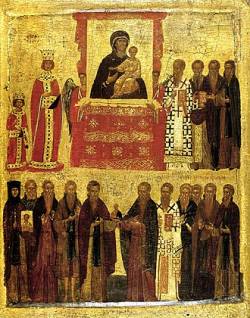The Synod of the Orthodox Church of Ukraine approved the transition to the New Julian calendar from September 1, Reuters reports.
This means that the Church will now celebrate Christmas on December 25th instead of January 7th. Other fixed-date holidays will also be moved, but the change will not apply to Easter, as its date varies.
The Church points out that regardless of the Synod’s decision, parishes and monasteries can continue to use the old calendar.
Although the transition to the new calendar must be approved by the local council of the church on July 27 with the participation of the laity, Metropolitan Epiphanius and a number of other bishops clarified that the matter has in fact been resolved and the change will take place from the beginning of September.
It was previously reported that the Ukrainian Greek Catholic Church also intends to switch to another calendar.
In the past, Zelensky’s government has been hesitant to oppose the Moscow-backed church in Ukraine, lest it cross any boundaries of freedom of religious expression or violate European or international norms protecting religious rights. Zelensky did not want to offend the adherents of this church, clearly realizing that in the ranks of its priests and worshipers there are many patriotic Ukrainians, some of whom are fighting on the front lines against the Russians.
But evidence that church leaders were acting to varying degrees as proxies for the enemy caused a shift in opinion amid public pressure for action.
More than 50 priests, according to the latest data, are under investigation for cooperation with Russian forces. One of the most famous is Father Mykola Yevtushenko, who is said to have collaborated with the Russians during their savage 33-day occupation of Bucha, offering blessings to the occupying soldiers and urging his parishioners to welcome the invading forces. As well as trying to support the invasion on behalf of his church, he has also named local residents most likely to resist the occupation of Bucha, a town northwest of Kiev that has become a byword for Russian war crimes.
In September and November, police actions in the buildings of the UOC found pro-Russian literature and Russian passports. Earlier this month, Metropolitan Pavel, abbot of the Lavra, was placed under house arrest ahead of hearings to determine whether he incited religious divisions and praised the Russian invasion. Paul says that the actions against him and the expulsion of the monks from the monastery were politically motivated.
The Kremlin is trying to use as a weapon the actions of the Ukrainian authorities against the UOC for propaganda purposes. In April, Western media outlets, including Politico, and human rights organizations were bombarded by thousands upon thousands of spambot emails purporting to come from ordinary Russian citizens expressing deep concern that Ukraine was “provoking an inter-religious war.” Spam messages from fake accounts claim that the Ukrainian president is throwing monks out into the street in violation of international norms and freedom of religious belief.











